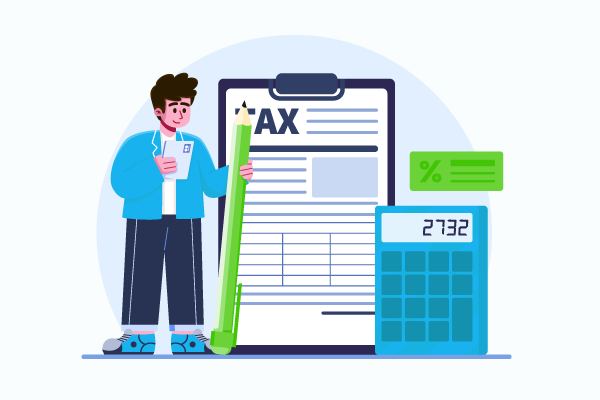Workers’ Compensation Insurance as well known as Workers’ Comp, is likely to be required for employers with employees. In most states, employers need workers’ comp if they have more than a certain number of employees, except for Texas. Most employers in Texas are not required to carry workers’ comp insurance.
You’ll likely have many questions about your workers’ comp benefits if you ever need to file a claim. The most popular one is: Are these benefits taxable?
In this article, we’ll discuss the exceptions to the rule, whether or not workers’ comp income must be reported on a tax return, and more.
The Basics Of Workers' Comp Insurance
Almost all states operate their own workers’ comp programs, with each setting its filing deadlines, premiums, and benefits. Also, the state determines whether state-owned agencies and private insurance companies can sell and handle policies.
As a result of work-related accidents, injuries, illnesses, and more, workers’ comp can cover lost wages as well as death benefits like funerals. To receive workers’ comp benefits, you must take the following steps if you have an eligible claim and your employer has workers’ comp insurance:
- Regardless of the deadline in your state, you should report your injury to your employer as soon as possible. According to state law in states such as Colorado, you have only four working days to report an injury in writing to be eligible for full benefits.
- There is typically a one-year to two-year deadline for filing a workers’ comp claim in most states. The sooner you file, the quicker you will receive your benefits. Fill out the required paperwork with your employer or HR department.
- Seeing a medical provider before triggering workers’ comp benefits is something your employer may require. To keep you protected by the policy, Social Security may also require you to visit a healthcare provider periodically. In some states, you may choose the doctor you visit.
If your accident occurred while you were driving home or running errands outside, your claim may be denied. Denials can also occur when application information is incomplete when accident reports and injuries do not match, and more. You’ll receive a letter if your claim is denied, telling you why it was denied, and providing information about appealing.
If your employer doesn’t carry workers’ comp insurance and you are injured at work, what can you do? Depending on your state, you may be eligible for an uninsured employer fund or need a personal injury attorney if you decide to file a lawsuit. In most cases, lawyers offer free consultations and only charge if they win your case.
Does The IRS Tax Workers' Comp?
Generally, workers’ comp benefits are not taxable, whether they are bi-weekly payments or settlements. Although these benefits are technically income, the IRS does not consider them as taxable income.
The IRS Publication 525 states that “amounts you receive as workers’ compensation for occupational illness or injury are fully exempt from tax if they’re paid under a workers’ compensation act or a statute like a workers’ compensation act.” This makes sense, considering that any lost wages you receive from workers’ comp are already at a reduced rate.
Workers’ comp benefits are generally tax-free, however, you may need to pay taxes in one instance. A person with a disability can receive financial aid from Social Security Disability Insurance (SSDI) if they meet program qualifications. The SSDI benefits may be taxable if they are reduced by workers’ comp benefits. In essence, it is the SSDI portion of your workers’ comp benefits.
Social Security benefits are not affected by every public benefit. Workers’ comp does not guarantee benefits, but other benefits like Supplemental Security Income (SSI) and Veterans Administration do.
Also, you would still have to pay taxes on your Social Security retirement benefits even if you retired because of a work-related injury or illness. Only workers’ comp benefits are tax-free.
Suppose you receive workers’ comp payments along with SSDI disability payments. You can then receive a maximum of 80% of your recent average earnings before becoming disabled. In that case, your SSDI benefit will be reduced so that your total benefits do not exceed 80%.
If you receive a lump-sum workers’ comp settlement, you may also receive an SSDI offset for workers’ comp. If you receive one, the Social Security Administration (SSA) asks that you contact them immediately.
A workers’ comp attorney may be able to help you structure your settlement so that your tax liability for the most recent tax year is minimized if your case is complex.
Deciding whether to enroll in a workers’ comp policy is a personal one that involves balancing costs and benefits. To learn more about workers’ comp laws, talk to your insurance agent.
As a Professional Employee Organization (PEO), P.E.O.PayGo can help you get workers comp, bundle payroll, and HR, and perform all the headache functions of a small business, all while saving you time and money. Let our Instaquote do all the work, we don’t need much information and it takes 2 minutes. Our software does all the work for you.
Get Ready, Set, and Covered Now!




